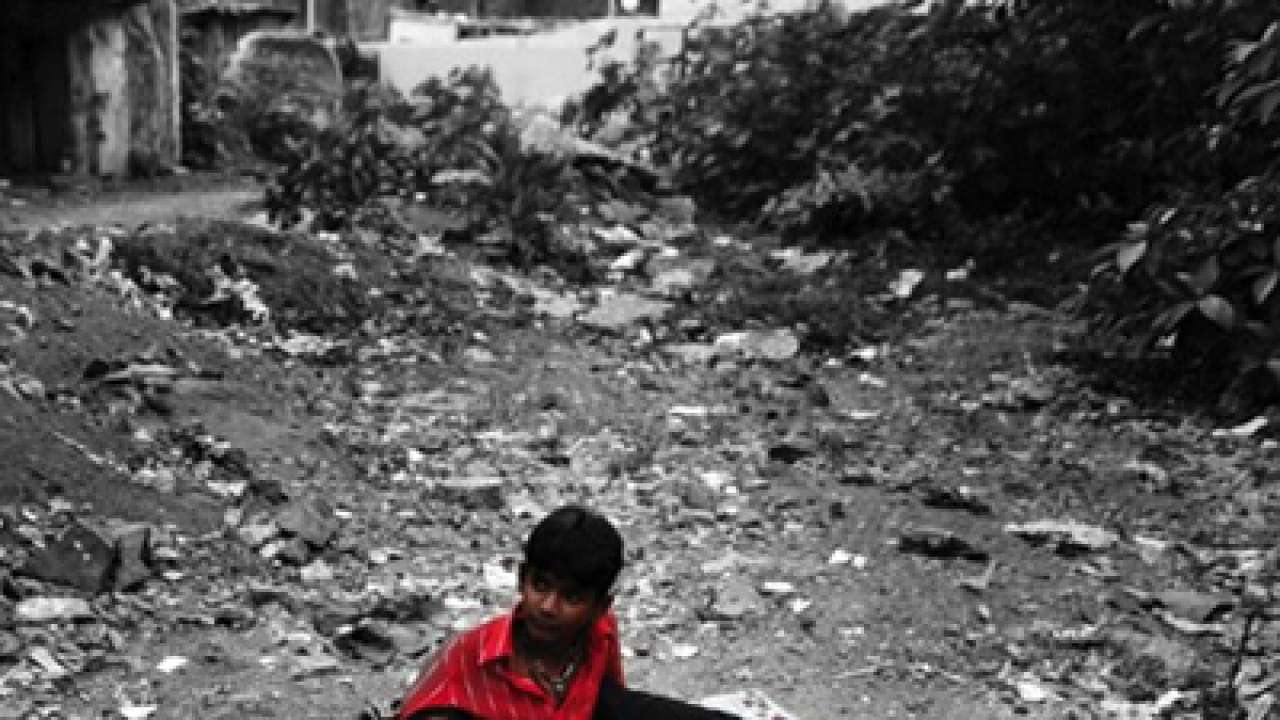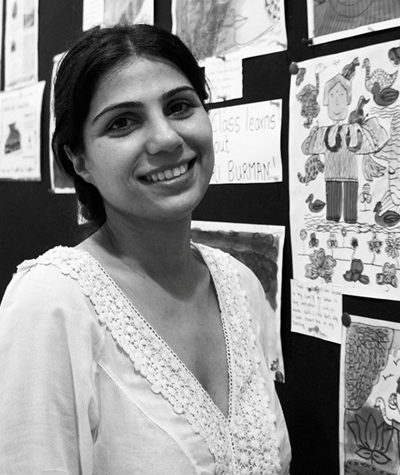
I never wanted to be a teacher. It just happened to me. When I quit the corporate world, I began volunteering at an Akanksha after-school centre that worked with slum children, thinking I would do this for a year and then return to my earlier life. I ended up teaching for over 10 years.
I had many questions when I began teaching. Could children from the slums speak impeccable English? Could they think critically? Could they change their lives? I had no answers and no one around me seemed to have any either.
Today, I can say with assurance that slum children can speak English, and can think critically. And 10 years from now I will be able to tell you whether they have changed their lives or not.
When I first became a teacher I unprepared for much that I experienced. I met children with lives who inhabited a world so removed from mine. Like all children they too laughed, cried, ate and played. But their reality was of living on the roads, of rat bites, of alcoholic fathers who beat their wives, of drugs, of no electricity, of fighting for water and often no food. What was I supposed to do and where was I supposed to start?
I chose to push them to learn. Despite being unsure myself, I made them believe education would be their way out.
I chose to focus on English because I believed it would give these children the advantage they would need to get ahead in life. Through newspapers, my students learnt about the Israel-Palestine crisis, Maoists, Kashmir, and the US subprime crisis. We learnt phonics, vocabulary, phrases and read books and articles. I pushed them hard and I began to see results.
Becoming a teacher was the toughest thing I did, and I believe it is one of the most difficult jobs in the world. In order to be a good teacher, I had to learn two things: not to feel guilty or conflicted between my world and theirs, and to continue fighting even when the fight was lost. There were instances when, in spite of all my efforts, my students quit their education.
Many times, I felt the task was impossible, the challenges were too great, the children's will too weak. Then I would think of the price of failure and how it would translate in these children's lives, and I would push my students and myself some more. There was no time to make allowances. We increased centre time to five hours. I worked zealously in making plans, correcting their work, gathering information, and researching for things to do. If the children didn't read the papers or complete their homework it would mean paying a fine of Rs 5 and staying back at the centre to write an essay. Holidays meant seven hours at the centre.
We also learnt outside of class. We did projects and went on field trips. We had fun days at my home when we watched films like Chicago, Hotel Rwanda, and Life is beautiful, and munched on popcorn.
At the end of every year, we put on a performance and the children knew that unless it was excellent we would not invite others to see our show. The children learnt what it was to work extremely hard at something, to have high expectations and to excel.

Anjali Sabnani, School Coach and Director of Education at Akanksha Foundation. Image courtesy Akanksha Foundation.
When cathedral students came as volunteers to my class I made them students. My children's self-confidence grew when they scored more in quizzes than them, and were pushed in other areas where they saw the cathedral students excel. The cathedral students learnt it was possible for any child to learn and how to be happy with so little. In time, the two groups of students saw that they weren't much different from each other and became friends. Cathedral students took part in three of our year-end projects. They also invited my students to take part in the Cathedral Model United Nations. My students represented Luxemburg.
Today, children from the two groups remain friends even though one may study at Xaviers, Mumbai, and the other at Brown University, US.
When one of my students, Jyoti Mishra, first joined my class she lacked confidence. She stammered and constantly fidgeted while talking. With time, praise and constant pushing, Jyoti soon began to open up. She had an aptitude for Math and in her SSC, she scored 145 out of 150. Today, after doing her 12th from Xaviers, she is studying engineering at Pune's Raisoni College. She wants to go abroad for further studies, and keeps switching between wanting to be an astronaut to joining the army. She may very well achieve her dreams one day.
Over the years my students have taught me several things. Two stand out for me. One, their happiness does not lie in material things. I was always amazed when my students were genuinely happy living in conditions most would find unbearable.
The second, their spirit remained undefeated. In the years that I taught them, three of my students watched their mother burn to death, six lost a parent to alcohol and other illnesses, and I lost one of my students when he was crushed by a train while chasing a kite near the tracks. As a tribute to Pankaj, my students cleared up a garbage dump and converted it into a cricket ground. Pankaj loved cricket.
Over time my students grew up. We bonded, and they now know some of my deepest worries and issues. We became each other's support system.
I want to end with the story of one of students, a girl called Draupadi. She was bright, articulate and had an aptitude for English. She dreamt of studying and becoming something, but she didn't get the chance. She was married off at 14 to a boy who had been chosen for her older sister. Her sister had eloped, and the parents, left shamefaced, had chosen to restore their lost honour by marrying their younger daughter off instead.
He was 20 years old and uneducated. When I visited Draupadi in her new home, a slum in Pune, she looked like she was playing dress up in her mother's clothes. She had lost the fight in her. She didn't want to leave, live in a hostel alone and face what life would throw her way.
I didn't push hard enough, thinking her life might work out, and maybe she would be happy. I was wrong. In the next few years, she had three miscarriages. Today, Draupadi is the mother of three and has returned to her parents' home. When I think of her and the millions of such Draupadis, I feel angry at the wasted potential, the lost chances, the defeated dreams.
I am driven to work harder so one day no more Draupadis will be sacrificed, no more Draupadis will be forced to give up on their dreams.
Anjali Sabnani is School Coach and Director of Education at Akanksha Foundation.
The Akanksha Foundation runs 15 municipal schools in Mumbai and Pune in partnership with the BMC and the PMC respectively. Follow them on twitter at @Akanksha_India.